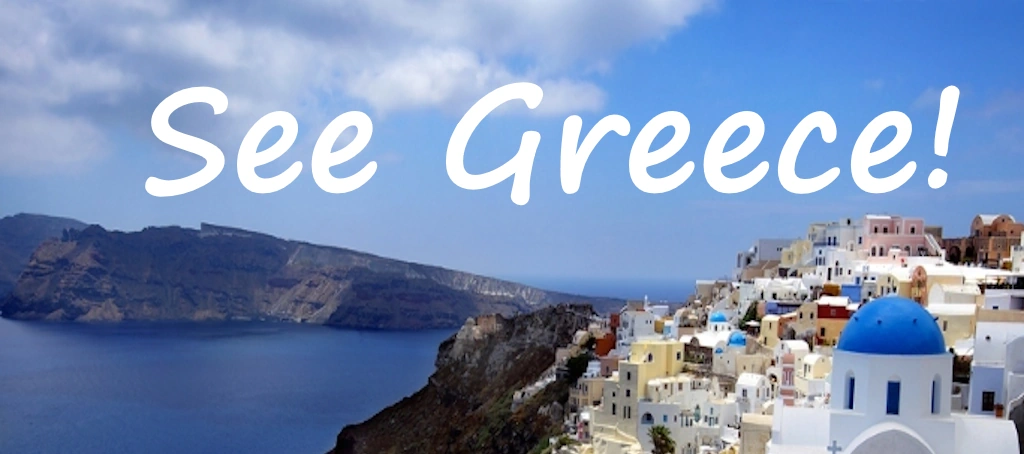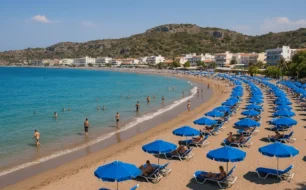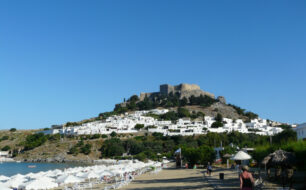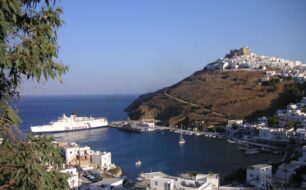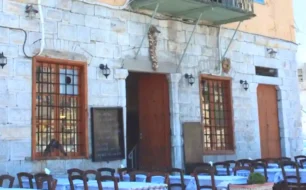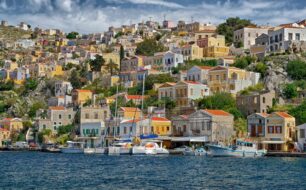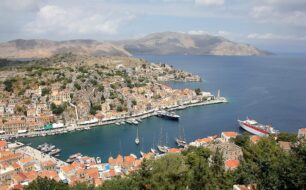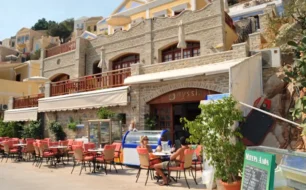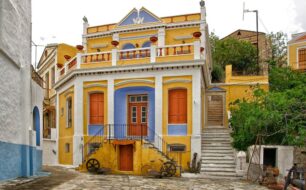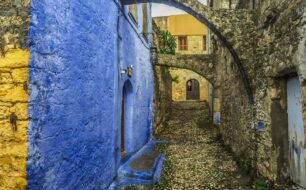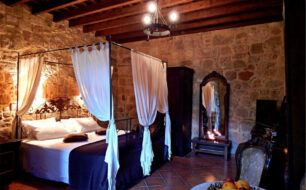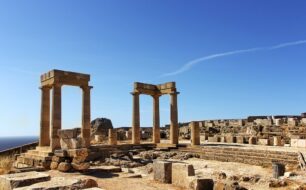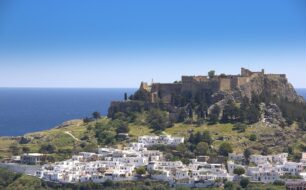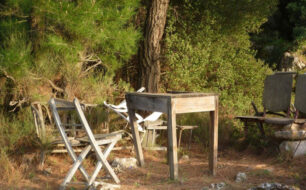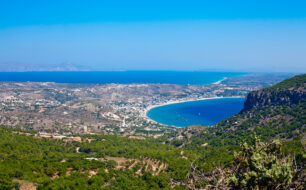The Dodecanese, Greece’s hidden gems, include Rhodes & Kos along with medieval castles, sandy beaches, Italian influences & Greek charm under the Aegean sun.

The Dodecanese, a captivating archipelago in the southeastern Aegean Sea, offers a mix of medieval history, crystalline waters, and rugged landscapes. Unlike the Cyclades’ white-and-blue aesthetic, these islands boast Venetian castles, Byzantine churches, and a strong Italian influence. This guide covers their history, geography, climate, and a full list of islands.
Dodecanese Islands (Alphabetical Order)
Note: Though “Dodecanese” means “twelve”, the group officially includes 15+ inhabited islands.
Agathonisi – Tiny, unspoiled island near Turkey.
Arki – A quiet escape with fewer than 50 residents.
Astypalea – “Butterfly-shaped” with white Cycladic-style villages.
Chalki – A sleepy island with a charming harbor.
Kalymnos – Famous for sponge diving & rock climbing.
Karpathos – Wild landscapes & traditional villages.
Kasos – Remote and rugged, with strong local culture.
Kastellorizo (Megisti) – Closest to Turkey, with colorful waterfront.
Kos – Lush greenery & ancient Asklepion ruins.
Leros – Italian-era buildings & dramatic fjord-like bays.
Lipsi – Serene beaches & sweet local wine.
Nisyros – Volcanic island with an active crater.
Patmos – Where St. John wrote the Book of Revelation.
Rhodes – Largest island, famed for its medieval Old Town.
Symi – Neo-classical mansions & stunning harbors.
Tilos – Eco-friendly paradise with wild nature.
Why Visit the Dodecanese?
– Rich history: Crusader castles, ancient ruins, and Italian-era towns.
– Pristine beaches: Secluded coves & turquoise waters.
– Authentic culture: Less touristy than the Cyclades.
– Outdoor adventures: Hiking, diving, and windsurfing.
History
Ancient & Byzantine Eras
The Dodecanese (Greek for “Twelve Islands”) have been inhabited since prehistoric times. Rhodes, the largest island and capital, was home to the Colossus of Rhodes, one of the Seven Wonders of the Ancient World. The islands later became part of the Byzantine Empire, leaving behind stunning churches and monasteries.

Knights of St. John & Ottoman Rule
In 1309, the Knights Hospitaller conquered Rhodes, building its iconic Palace of the Grand Master. The Ottomans took control in 1522, ruling until 1912.
Italian Occupation & Modern Greece
Italy seized the Dodecanese in 1912, adding Art Deco architecture (especially in Kos and Leros). After WWII, the islands finally joined Greece in 1948.

Geography
The Dodecanese lie near Turkey’s coast, with 15 major islands and over 150 smaller islets. Key features:
– Diverse landscapes: Lush Rhodes vs. arid Astypalea.
– Italian & Ottoman architecture: Cobbled streets, medieval castles, and pastel houses.
– Stunning beaches: From Prasonisi’s windswept dunes to Kos’s packed sands.

Climate
– Summer (June–September): Hot & dry (25–35°C / 77–95°F), perfect for beachgoers.
– Shoulder seasons (May, October): Warm, fewer crowds, ideal for hiking.
– Winter (November–April): Mild (12–18°C / 54–64°F), with occasional rain.
Best time to visit: May–June and September–October.

Conclusion
The Dodecanese blend medieval charm, crystal-clear seas, and untouched beauty. From the legendary Rhodes to the volcanic Nisyros, each island offers a unique escape. Ideal for history lovers, beachgoers, and adventurers alike!
